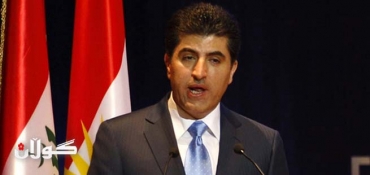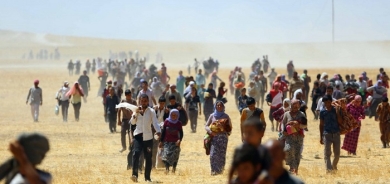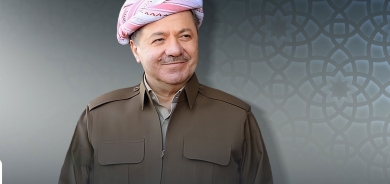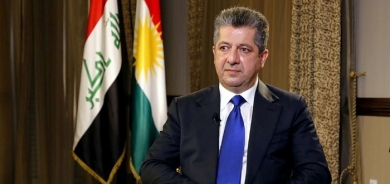KRG Prime Minister Breaks Ice in Baghdad
May 5, 2013
From Media

The visit, however, surpassed all expectations when an agreement on solving thorny problems between both parties through laws and the constitution was announced by the Iraqi government following the meeting between Iraqi Prime Minister Nouri al-Maliki and Barzani.
At the same time, discussions focused on the necessity of putting security concerns at the heart of the relationship between both parties and enacting the law on oil and gas that has been delayed for years.
At first glance, the terminology used in the statement and the announcement of the spokesman for the government, Ali Musawi, about setting up a joint committee between both parties to settle disputes seems like a repeat of previous, futile meetings that did not contribute to placating the crisis. Yet facts and data reveal that young Barzani, who is widely described as a skillful negotiator, had succeeded previously in breaking the historical ice between the Kurds and Turkey, and did actually succeed this time, as well as in shaking off the stagnation with Baghdad.
The new agreement, nonetheless, does not live up to being a comprehensive solution, yet it comes at a delicate time, when the crisis between the government on the one hand, and Sunni tribes and political powers on the other, has reached the level of clashes. In this regard, Iraqi Speaker of Parliament Osama al-Nujaifi set forth an initiative that calls for early elections supervised by a reduced government that is not entitled to take part in elections after the current government resigns. Barzani, who met with Nujaifi during his visit, must have discussed this suggestion with him as part of choosing between two major choices.
The first is heading toward early elections under the supervision of the current government in a caretaker capacity, which means that the sectarian, national Iraqi crisis will be spelled out in electoral votes. In this sense, the upcoming parliament will be the product of divisions in Iraq and an additional reason for escalation in the future. Another possibility, which is more promising, is that of drawing up a new political map, similar to the case of provincial elections, which will witness the emergence of new powers, rendering the traditional powers less effective.
The second is solving the current crisis with the current parliament and with current prominent politicians prior to the upcoming elections, even it requires postponement. Such a choice prompts two hypotheses: The first sees that Iraqis will reward the political class for finding a solution and will re-elect it. The second believes that finding a solution to the crisis will pull out from under the feed of the current politicians one of the most important elements of their survival and charisma, which was not founded on achievements, but rather on sectarian and national divisions.
Apart from these choices, the visit of Barazani has opened the door wide to look into two peaceful solutions for the Iraqi crisis that had swiftly been heading toward bloodshed and civil war.
Saving Iraq is no walk in the park and does not only need goodwill; it also requires skillful leadership capable of reversing the catastrophic odds and transforming them into safer possibilities.
There is a common belief in Baghdad that the current political circle is not capable of acting decisively and making important decisions, such as holding a comprehensive national meeting and solving thorny issues. The political class will proceed in using the crisis in its political and electoral favor.
The outcome of Barzani’s visit to Baghdad, however, seems to open the doors for hope, contrary to that common belief.
Mustafa al-Kadhimi is an Iraqi writer specializing in defense of democracy. He has extensive experience in documenting testimony and archiving documentaries associated with repressive practices. He has written many books, including Humanitarian Concerns, which was selected in 2000 by the European Union as the best book written by a refugee.
By: Mustafa al-Kadhimi for Al-Monitor Iraq Pulse











